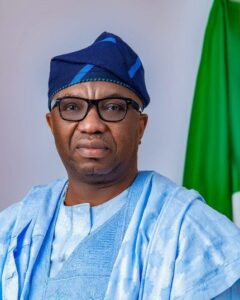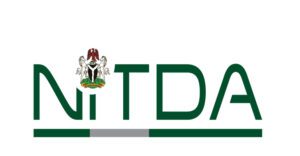
Tijani harps on benefits of DPI, hosts ICT Heads of MDAs
Minister of Communications, Innovation, and Digital Economy, Dr Bosun Tijani, has harped on the benefits of Digital Public Infrastructure in governance.
The Minister spoke when he hosted ICT Heads of Ministries, Departments, and Agencies, in Abeokuta, Ogun State capital at a meeting in Abeokuta.
According to Tijani, “In serving people better, we must use technology to make it easier for people to access the services that the government provides. It is important to bring everyone that is responsible for technology within the federal government together to provide leadership for how we use that technology.
“We have had great technologies. NIMC, for instance, people are registering. We have telecommunication companies, which means that one can track a caller, but the challenge that we have always had is that these things have been done in silos, they don’t speak to one another and that is where data sharing comes in.
“DPI is going to lead us to one thing, which is a one government platform. If we do DPI very well, we should have a single website where, if you want to access any government service, that should be where you go. Once we have our DPI in place, it means that more of the services that Nigerians consume will become digitalised.”
When questioned on when this innovation is likely to take off, the minister said, “At the moment, there are still so many things that we should have digitised; once DPI is in place, it makes it a lot easier for people to digitise their services. We should start to see these benefits in the next 12 months; we would start to see changes in the way technology is being used by the government.”
The Minister also encouraged the ICT Heads to adopt data sharing.
“Sharing of data is not just about fraud; the matter of data sharing in government is about effectiveness. If we share data appropriately, say the Humanitarian Ministry is able to truly understand Nigerians that are poor and need resources, that way they can target their intervention to serve these people.
“If data is then shared seamlessly and appropriately, we can know how many kids are in primary and secondary schools, and if we need to provide interventions to support them, it is a lot easier to support them.
“If we are sharing data appropriately, we can even know how people are moving between states in Nigeria so that when there is the need to increase the capacity to support people, we can quickly do that seamlessly.
“The power of data sharing is about enabling the different parts of government to function effectively because what you do in education affects what you do in health, what you do in transportation affects what you do in security, but if we don’t share that data, each entity will be struggling to get information on the people they need to serve, that is why we are prioritising that as a government,” Tijani explained.




